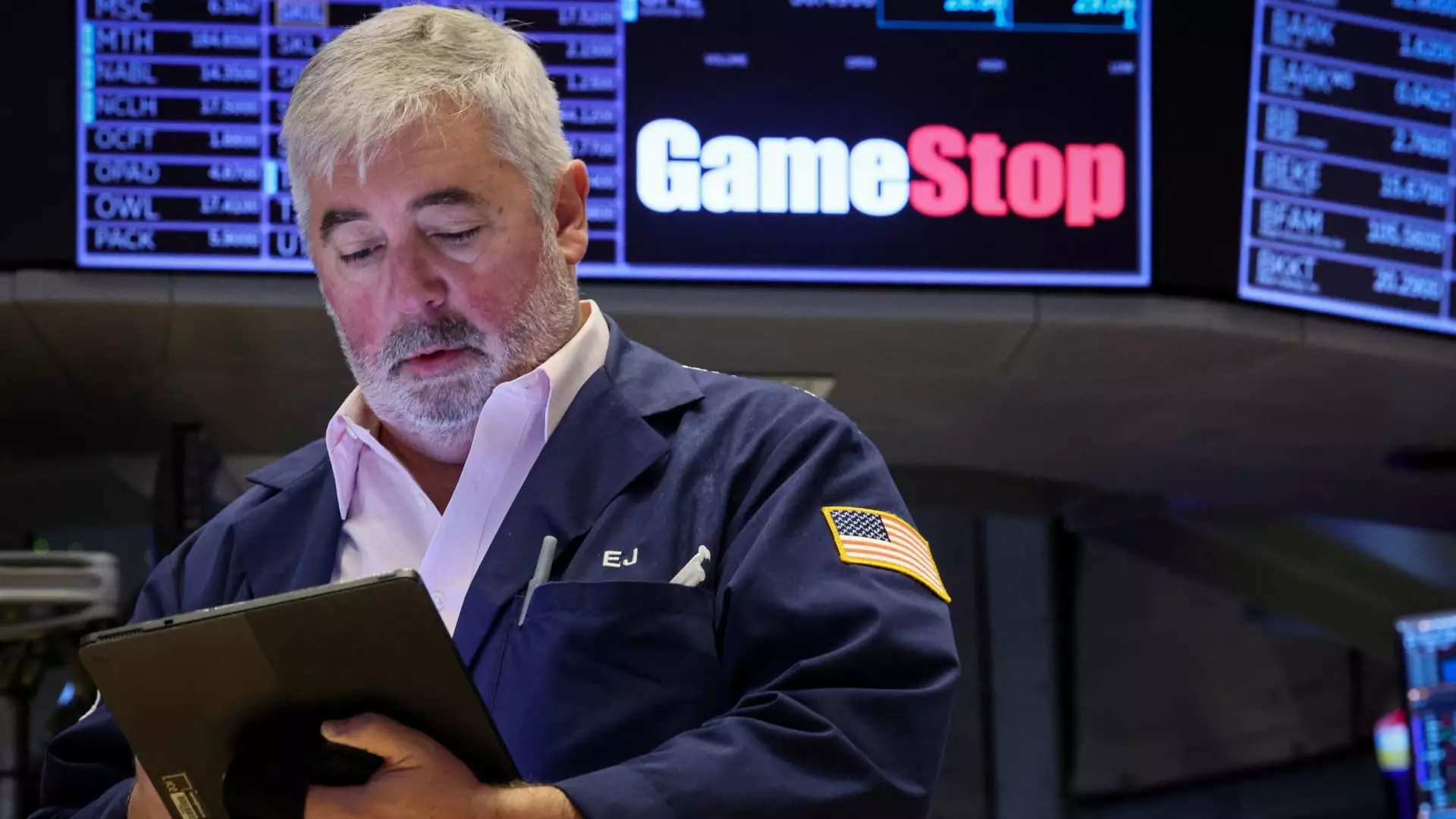GameStop, once a bastion for retail investors hoping to outsmart Wall Street, has once again aligned its fate with the volatile world of cryptocurrencies. Recently, the retail chain announced it would raise $1.3 billion through a sale of convertible notes to pour into Bitcoin. This dramatic pivot follows the trend set by other companies, such as MicroStrategy, but it raises eyebrows on multiple fronts. Why would a traditional video game retailer dive headfirst into an arena as unpredictable as the cryptocurrency market? One can’t help but wonder if GameStop is engaging in a fool’s errand, chasing a forward-looking strategy that could very well lead to its demise.
The Immediate Financial Fallout
Within a day of the announcement, GameStop’s stock plummeted over 15%, erasing the previous day’s almost 12% gain. This swift reversal speaks volumes about investor sentiment. Analysts like Michael Pachter from Wedbush, who holds an underperform rating for the company, express doubt about the effectiveness of this strategy. A mere glance at GameStop’s peculiar valuation—a staggering $12.7 billion that exceeds its cash reserves—paints a troubling picture. Why would investors cling to the notion that this strategy will pay off when the math doesn’t seem to add up? The company’s high valuation compared to its actual cash balances suggests that many investors may still be riding on the fumes of the meme stock phenomenon.
A Misguided Leap into Cryptocurrency
Investing in Bitcoin through corporate cash or debt proceeds resonates with the high-stakes mentality prevalent in today’s marketplace, yet GameStop’s approach seems reckless. Instead of stabilizing its financial position, it appears to be gambling its future on an asset class characterized by volatility. With echoes of caution ringing through the investment community, Pachter’s assertion that Bitcoin will not help drive GameStop’s valuation higher than its already inflated metrics seems on point. After all, Bitcoin’s own market is hardly stable, which could lead GameStop to face even greater uncertainties down the road.
Can the Meme Phenomenon Last?
Perhaps the biggest question at play here is whether the so-called “GameStop phenomenon” has legs. Will retail investors continue to support a struggling venture that is now gambling on Bitcoin? The need for a “convert investor” to believe that GameStop’s meme stock status will still be relevant five years from now is a tall order. The sentiment mirrors a desperate hope that Bitcoin investments will somehow revive a company whose core business model is already shaky. Such faith feels unfounded in an age where rapid market shifts can squash dreams overnight.
The Perils of Misplaced Trust
While one could argue that diversifying into cryptocurrencies aligns with modern investment strategies, GameStop’s strategy appears inherently flawed. The notion that a video game retailer can magically morph into a savvy Bitcoin player leaves skepticism in its wake. History teaches us that companies that take reckless bets often pay a hefty price, and as GameStop risks its financial stability on a cryptocurrency frenzy, the trend of misplaced trust in the stock market could lead to dire consequences. This narrative underlines a critical juncture for shareholders: is it time to reconsider their investments or are they willing to gamble on GameStop’s uncertain future?

